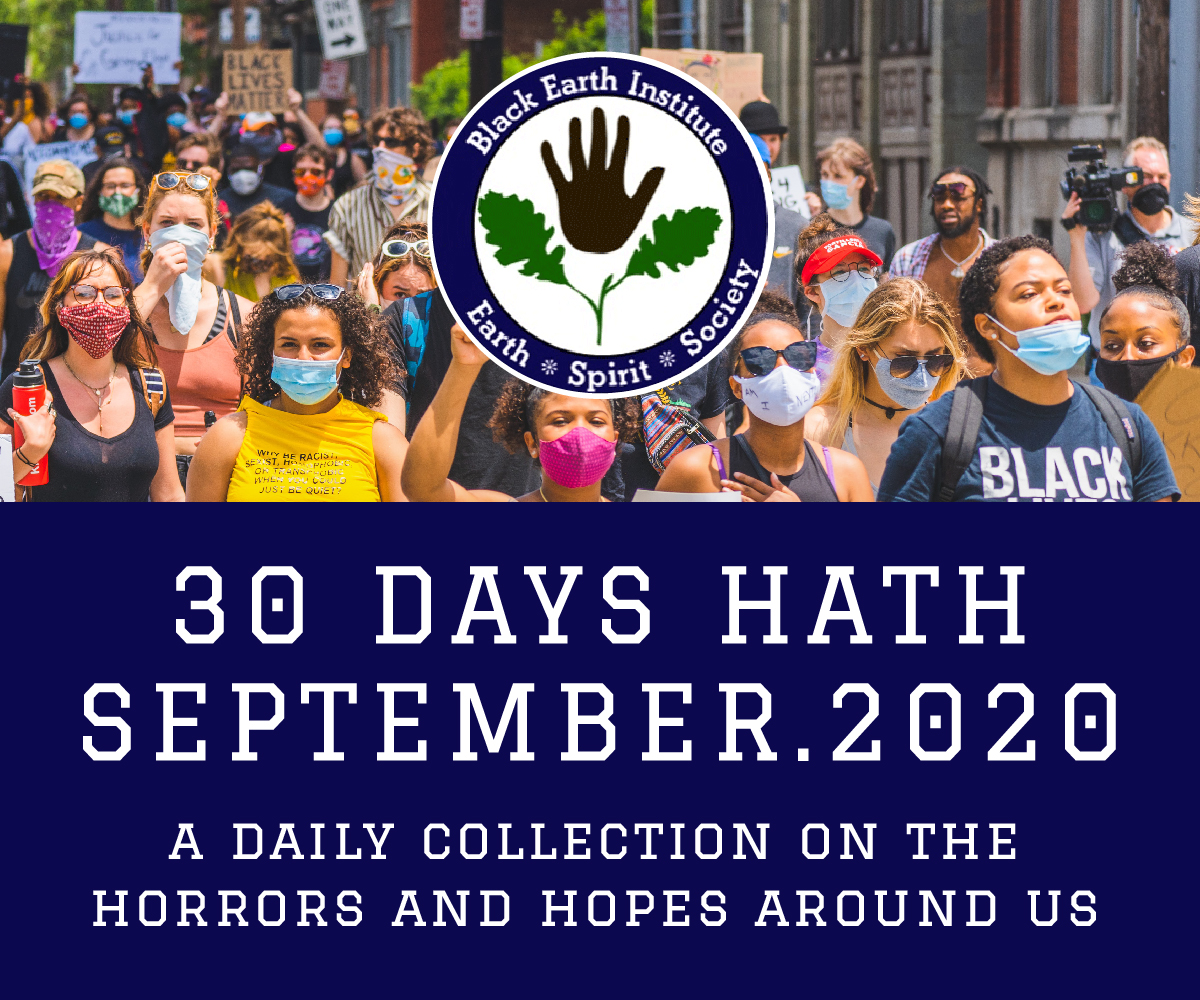
By Kimberly Blaeser
Suffrage:
In late middle English
intercessory prayers,
a series of petitions.
Not the right — but the hope.
Universal:
applicable to all cases —
except those marginalized
and unnamed.
A belief, but not a fact.
from “A Quest for Universal Suffrage”
Kimberly Blaeser
Among my collection of hardly worn t-shirts, one bears the logo: “Seneca Falls: where women are always right.” In the middle of these words is a face few will recognize although it also graces a copper-nickel U.S. dollar. You might say this is her year.
2020 ostensibly marks the 100th anniversary of women’s suffrage. At least we can claim that one hundred years ago congress passed the 19th Amendment—the Susan B. Anthony Amendment—guaranteeing and protecting women’s constitutional right to vote.
Earlier in 2020, I was among a group of nineteen women poets commissioned to contribute to the New York Philharmonic’s Project 19. This laudable initiative was billed as “the largest women-only commissioning initiative in history,” and had at its center new work by nineteen female composers. I wrote of a legislative project that did not affect Native women.
Of course, I honor and celebrate the work of the many women leaders who lobbied, marched, picketed, protested, and voted “illegally,” who were mocked, brutalized, and served time in jail while working to win votes for women. A year ago, when I began to watch Suffragette, a Meryl Streep movie based on the U.K.’s suffrage movement. I stopped at the scene where one woman stands outside her own home pleading for contact with her young son, contact denied because of her revolutionary activity. She watches while the child is “legally” handed off to another family for adoption. Later, when I forced myself to watch the film to the end, I still felt broken by imaging the sacrifices of these women.
As I feel broken when imagining the Black and Indigenous women who worked for suffrage, perhaps even celebrated the passage of the 19th Amendment, and yet remained disenfranchised. My Indigenous ancestors, like most Native Americans, had not been granted citizenship in 1920. The ancestors of my Black sisters-in-resistance still faced poll taxes and literacy tests, violence and lynching. “Universal” suffrage did not come with the 19th Amendment.
I might be alluding to the interesting quirk of history involving belated ratification. (The Amendment only became “officially” ratified on August 18th, 1920 when, with a vote of 50-47, Tennessee became the last state needed to ratify the 19th Amendment.) Or I might be speaking symbolically. No. Indeed, I say simply we still do not have universal suffrage. A law is only a hope unless someone upholds it.
Indeed, I wonder that anyone thinks we even now have universal suffrage. Although all Native Americans were finally granted citizenship in 1965, although the 1965 Voting Rights Act finally gutted Jim Crow laws, many “legal” barriers to voting access and the equitable tally of votes still endure (with more being erected or upheld by courts as I write). Carefully constructed restrictions exist involving voter registration, voter IDs, early voting, and voting by mail. Add to this voter roll purges and racial gerrymandering. A purposeful U. S. postal slowdown may or may not be another new “legal” tactic.
When I vote this year, I will remember the work of all who have sacrificed for the citizenship and suffrage of women. I will honor Zitkala-Ša, Yankton Sioux writer, activist, and tireless worker for women’s suffrage. I will honor Laura Cornelius Kellogg, poet and member of the Wisconsin Oneida Nation who advocated for women’s right to vote. I will honor my mother, Marlene Blaeser, Anishinaabe tribal poll worker from the White Earth Nation, who taught me women have both voice and vote.
Like the women of our history, we face a stacked deck. The election system does not welcome all comers. Ironically, only voting itself can clear the way for others. Universal suffrage remains a legal illusion. To make it fact, we must find our way through the election labyrinth—to the “guaranteed” but still elusive ballot.
Kimberly Blaeser, past Wisconsin Poet Laureate, is the author of five poetry collections including Copper Yearning, Apprenticed to Justice, and, the forthcoming bi-lingual Résister en dansant/Ikwe-niimi: Dancing Resistance. An Indigenous activist and environmentalist from White Earth Reservation, she also edited Traces in Blood, Bone, and Stone: Contemporary Ojibwe Poetry. Blaeser is a Professor at University of Wisconsin–Milwaukee and MFA faculty for the Institute of American Indian Arts in Santa Fe. Her photographs, picto-poems, and ekphrastic pieces have been included in exhibits such as “Ancient Light” and “Visualizing Sovereignty.” She lives in rural Wisconsin; and, for portions of each year, in a water-access cabin near the Boundary Waters Canoe Area Wilderness in Minnesota. Blaeser is founder of the literary organization In-Na-Po—Indigenous Nations Poets.

